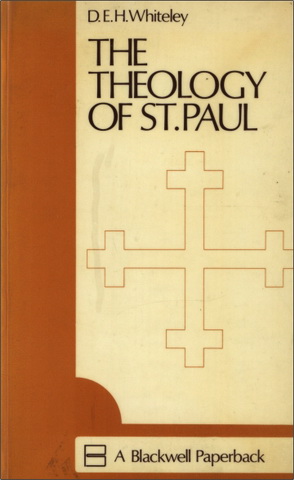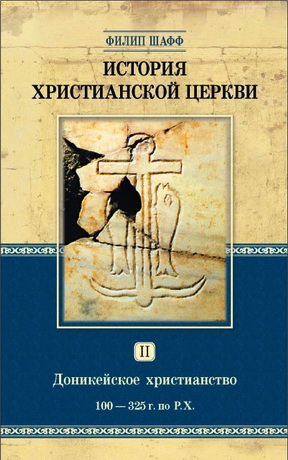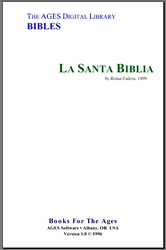
Whiteley - The Theology of St. Paul
The aim of this book is to expound the Theology of St. Paul. No attempt has been made to consider the 'realities behind' his thought or to apply Pauline teaching to the needs of our own day. These objectives are, of course, legitimate and indeed essential; but there is а grave risk of reading our own concern s into the thought of the Apostle and so of distorting his message. I have therefore confined myself to the limited task of trying to discover what he actually intended to convey to his fellow-Christians when he composed his epistles.
D. Е. Н. Whiteley - The Theology of St. Paul
Oxford Basil Blackwell 1964 – 366
ISBN 0 631 1S710 7
D. Е. Н. Whiteley - The Theology of St. Paul - Contents
INTRODUCTION TO SECOND EDITION
INTRODUCTION TO FIRST EDITION
1. THE BACKGROUND OF ST. PAUL’S THEOLOGY
I. THE PROBLEM AND ITS OVERTONES
II. ST. PAUL’S GENTILE BACKGROUND
III. ST. PAUL’S JEWISH BACKGROUND
IV. ST. PAUL AND APOSTOLIC CHRISTIANITY
V. THE OLD TESTAMENT
2. THE CREATED ORDER
I. CREATION
II. THE SUPERNATURAL CREATION
III. THE HUMAN CREATION
3. THE FALL AND ITS RESULTS
I. THE FALL
II. GENERAL REVELATION
III. NATURAL MORALITY
IV. THE WRATH OF GOD
4. PREPARATION FOR THE GOSPEL
I. INTRODUCTORY
II. THE JEWS
III. THE LAWS
IV. THE GENTILES
V. PREDESTINATION
5. ' THE LORD AND THE SPIRIT'
I. JESUS IS LORD
II. THE HOLY SPIRIT
6. THE WHOLE WORK OF CHRIST
THE DEATH OF CHRIST
THE RESURRECTION OF CHRIST
THE ASCENSION
7. HOW CHRIST’S WORK AFFECTS MEN
I. INTRODUCTORY
II. JUSTIFICATION
III. BAPTISM
IV. SACRAMENTALISM
V. BAPTISM FOR ТНЕ DEAD
VI. INFANT BAPТISM
VII. THE LORD'S SUPPER
VIII. UNWORTHY PARTAKING OF THE LORD'S SUPPER
8. CHURCH AND MINISTRY
I. THE ECCLESIA
II. THE BODY OF CHRIST
III. THE APOSTOLATE
IV. OTHER MINISTRIES
9. MORALITY
I. MORALITY INTEGRAL TO ST. PAUL'S THEOLOGY
II. THE CRITERIA OF MORALITY
III. MARRIAGE
IV. EQUALITY AND SUBORDINATION
V. FOOD LAWS
VI. THE STATE
VII. LOVE
10. ESCHATOLOGY
I. INTRODUCTORY
II. TEACHING PECULIAR TO 2 THESSALONIANS
III. DID ST. PAUL THINK THE END WAS AT HAND?
IV. DID ST. PAUL'S ESCHATOLOGY DEVELOP?
V. THE RESURRECTION OF THE FAITHFUL
VI. THE RESURRECTION BODY
VII. PURGATORY
VIII. THE 'SLEEP OF THE SOUL'
IX. THE MILLENNIUM NOT PAULINE
Х. WILL ALL BE SAVED?
LIST OF ABBREVIATIONS
POSTSCRIPT
ADDITIONAL NOTES
BIBLIOGRAPHIES AND INDEXES
D. Е. Н. Whiteley - The Theology of St. Paul - I. The problem and its overtones
Although this book is devoted to an exposition of St. Paul's theology, it is essential to begin by examining very briefly the background to his thought. lf we are to understand what he means, it is first necessary to realize what questions he was trying to answer. Again, false views about the background to St. Paul's thought go hand in hand with misleading theories concerning the substance of his theology.
In this initial chapter we shall treat the background of his beliefs in а summary fashion, before going on to а closer examination of the Apostle's convictions in the remaining nine chapters.
When the 'man in the street' hears the Apostle's name mentioned, it of tens conjures up in his mind certain half-formulated ideas which are very closely related to the problem of background. For example, it is commonly thought that St. Paul was the man who ruined Christianity: Christ, it is said, preached the true Gospel, and the church perverted it, St. Paul being the chief off ender. It is thought, for instance, that St. Paul introduced false ideas derived from 'Greek thought' or from the Mystery Religions, or, on the other hand, that he dragged back the infant church into the morass of Judaism from which Our Lord had freed it.
W е shall see that St. Paul did not borrow wholesale from the Мystery Religions, though it is true that St. Paul and the devotees of the Mystery cults held in common certain presuppositions which the majority of twentieth-century men do not share; this makes them appear to have been more alike than they really were.
Again, we shall see that there is almost nothing in St. Paul's writings which could not have been derived from Judaism or from the apostolic church. On the other hand, we must not imagine that Jews and Gentiles were living wholly apart. On the contrary, they borrowed much from each other. Above all, we must maintain that the authority of St. Paul's writings does not depend upon their background. As Jams Barr has pointed out, ' "Semitic" language and thought is not as such necessarily superior to that of other language-groups. Throughout most of their history the people of God had to strive not against Hellenism at all, but against the Baalim and other gods worshipped by those who were just as "Semitic" as themselves'. St. Paul's thought is in f act mainly Jewish in origin, but that is not the reason why we accept its authority.





Комментарии (1 комментарий)
Спасибо за хорошую книгу! Хотя ей уже 40 лет, но для паулинистов пригодится для обзора "истории вопроса".